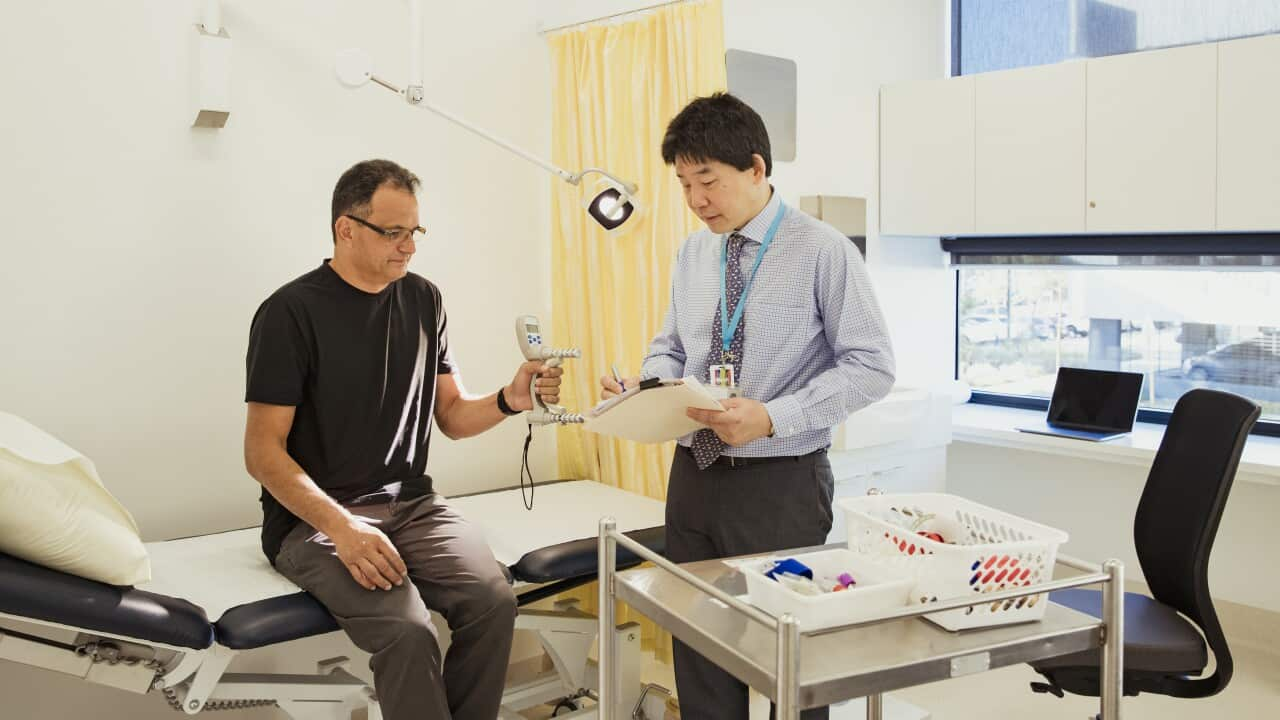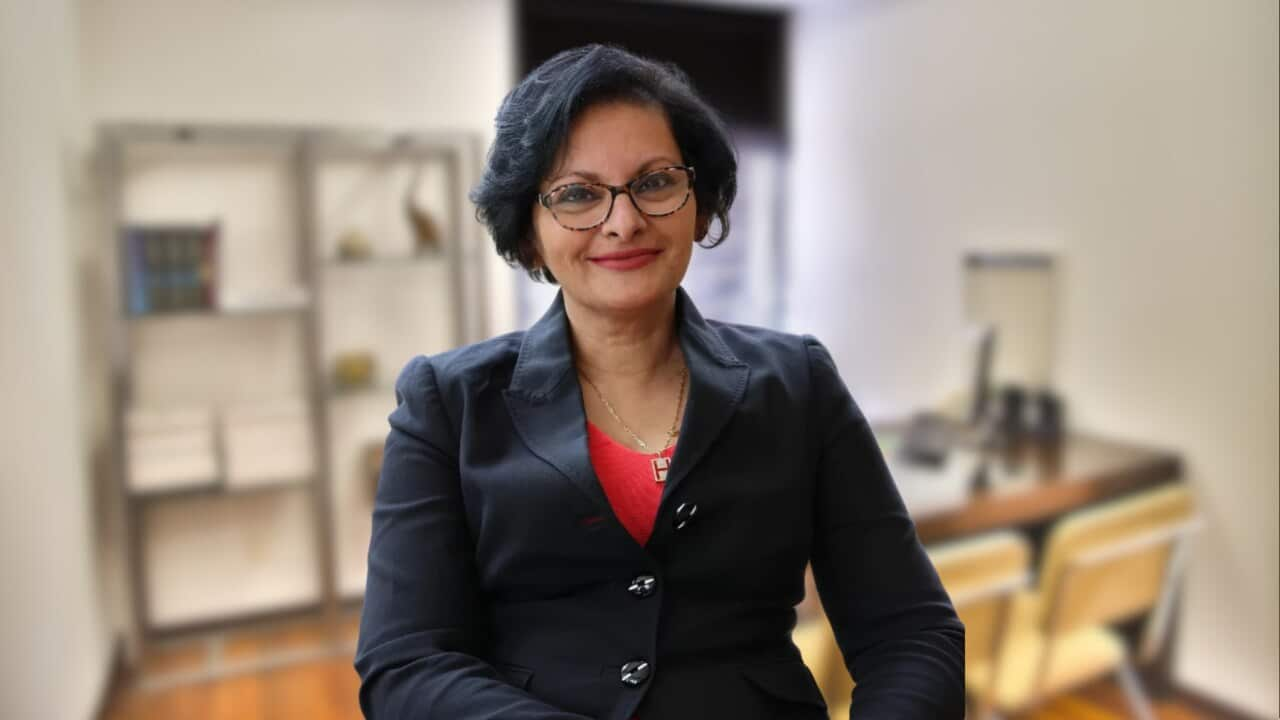TRANSCRIPT
“If the Australian people entrust our Labor government with a second term, a single straightforward objective will be the foundation of our health policy. By 2030, we want nine out of every 10 visits to the GP to be bulk billed.”
That's Prime Minister Anthony Albanese, announcing an eight point five billion dollar funding boost to Medicare on a pre-election visit to Tasmania.
The Launceston visit is one of several the prime minister has made to the island state in recent months - highlighting its key status as an election battleground.
But the PM says this is not about politics.
“That is an ambitious goal, but people deserve ambition from their government on Medicare. Because just as every Australian wants the best possible health care for their family, our government wants the best possible health care for every Australian.”
Nevertheless, the announcement has quickly developed into a political tit for tat, with an election looming and the date yet to be called.
Opposition Leader Peter Dutton has matched Labor's pledge with an investment of his own.
“I'm pleased to announce today the Coalition government is committed to $9 billion worth of investment into our general practice network. It will provide support to training, it will provide support to mental health services, and it will provide support to making sure that practices are viable and can provide a mix of services to patients. And it will help build bulk billing rates back up to what they were under a Coalition government.”
Liberal Senator and health spokesperson Anne Ruston says Labor's boost to health funding is too little, too late.
“We will not stand in the way of a mess that the Labor government has made that they're now seeking to try and remedy.”
Health Minister Mark Butler has already fire d back, saying the opposition leader cannot be trusted.
“Who tried to abolish bulk billing altogether with a GP tax that every Australian would have had to pay every time they went to the doctor... The man who Australia's doctors voted the worst health minister in the history of Medicare. You know him: Peter Dutton.”
Meanwhile Greens leader Adam Bandt wants to take things even further.
He says he doesn't trust Peter Dutton either.
“The Greens are calling on the Prime Minister to get Parliament back next week, when half of the Senate is going to be there anyway. Let's use this opportunity before the election is called to put GP For Free into law so that everyone has it as a guarantee. That way it won't be subject to the whims of Peter Dutton and Pauline Hanson.”
With Medicare already a focal point in an election campaign that is yet to be officially underway, doctors groups have expressed concern about the effectiveness of these funding promises.
Australia's bulk-billing rate plummeted to 20.7 per cent at the start of 2025, down from almost 36 percent two years earlier, according to data released in January by health care directory Cleanbill.
Regional GP services provider Hamish Meldrum says the funding will replenish GP health care deserts in regional and remote communities.
But the Royal Australian College of GPs president Michael Wright says not everyone will be bulk billed in the future as patient rebates are still too low to cover the cost of care.
Australian Medical Association president Dr Danielle McMullen agrees.
“In areas that are already fully bulk-billing this really helps sustainability and helps those practices keep their doors open. And in many parts of Australias where doctors and practices have just introduced quite small out of pockets just to keep their businesses alive, this will help them remain open and potentially remove those out of pocket costs and improve accessibility for patients. In other parts of Australia, I think we need to recognise that this won't be enough to change billing practices, particularly in our large metropolitan centres where the average out of pocket cost is now much more than $40, and so the extra $20 incentive doesn't meet those increased costs of care. But (it) does allow us, for patients who really can't afford to pay, it does give GPs a bit more flexibility to choose to make that decision.”
The verdict from voters is mixed.
This man says the extra funding won't have an impact for him.
“At this point in my life it doesn't make any difference at all. I get em free anyway. But I'm happy for those who are going to get it free, yeah.”
Still, for other ordinary Australians, there's reason for optimism.
"I'm hoping that it encourages more GPs and that to do bulk billing and to open up more hours, because just getting in to the GP at the moment is quite difficult.”
“I'm on a very tight budget so... in terms of not wanting to go to the GP because it costs too much money.”
But the AMA's Dr McMullen has warned patients against getting their hopes up too quickly.
She says the Medicare funding boost won't be an immediate cure.
“We encourage the community to understand that while this does increase the eligibility of these incentives, it doesn't mean that every single practice will be bulk billing overnight.”
Dr McMullen says broader changes are still needed.
“I think it'll help in some areas of particular disadvantage. But we can't lose sight of the need to reform Medicare more broadly, and make sure that we're really supporting Australians with chronic disease, mental illness, our ageing population - and reforming the structure so that all Australians have access to appropriate rebates, no matter how long they need to spend with a GP.”













